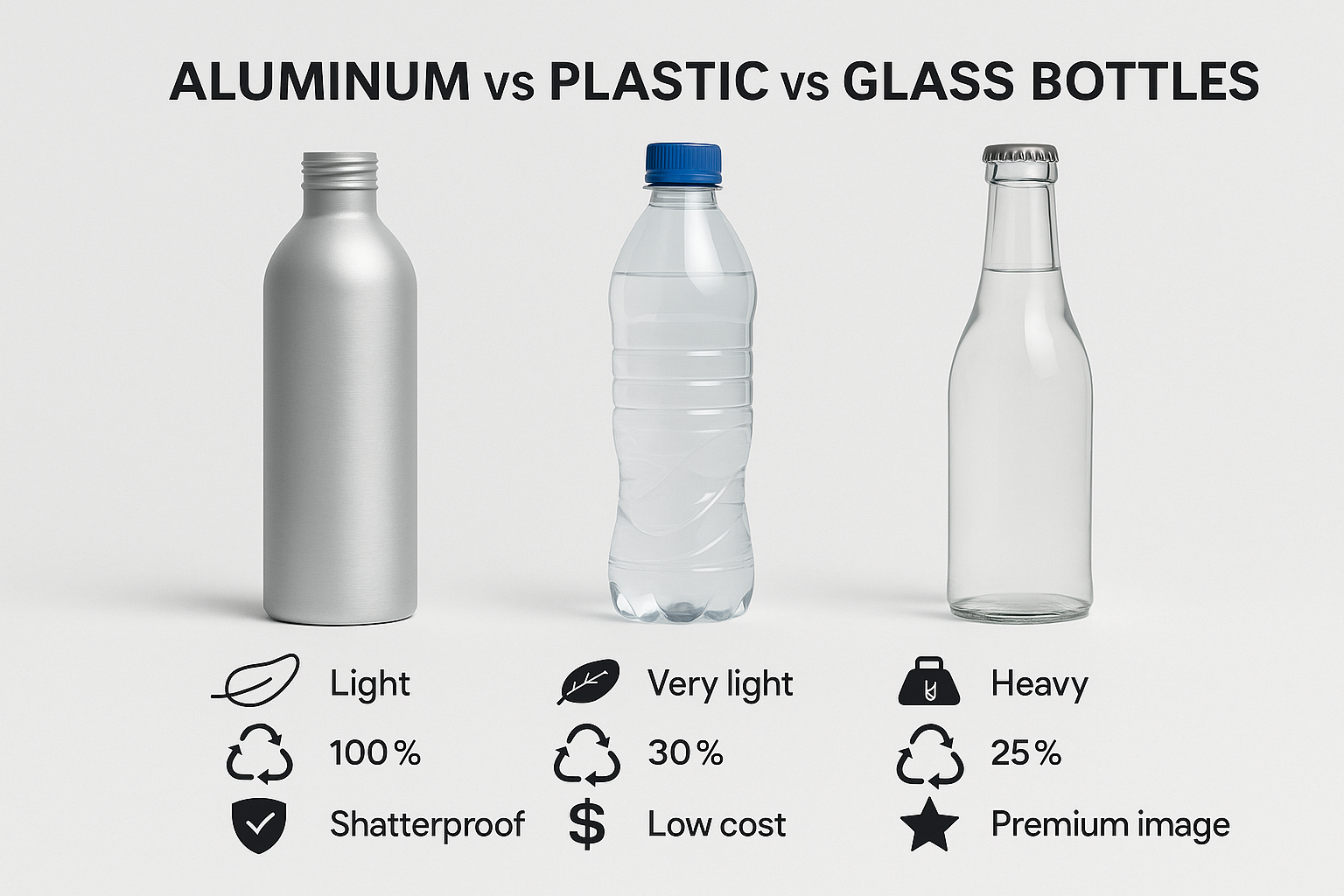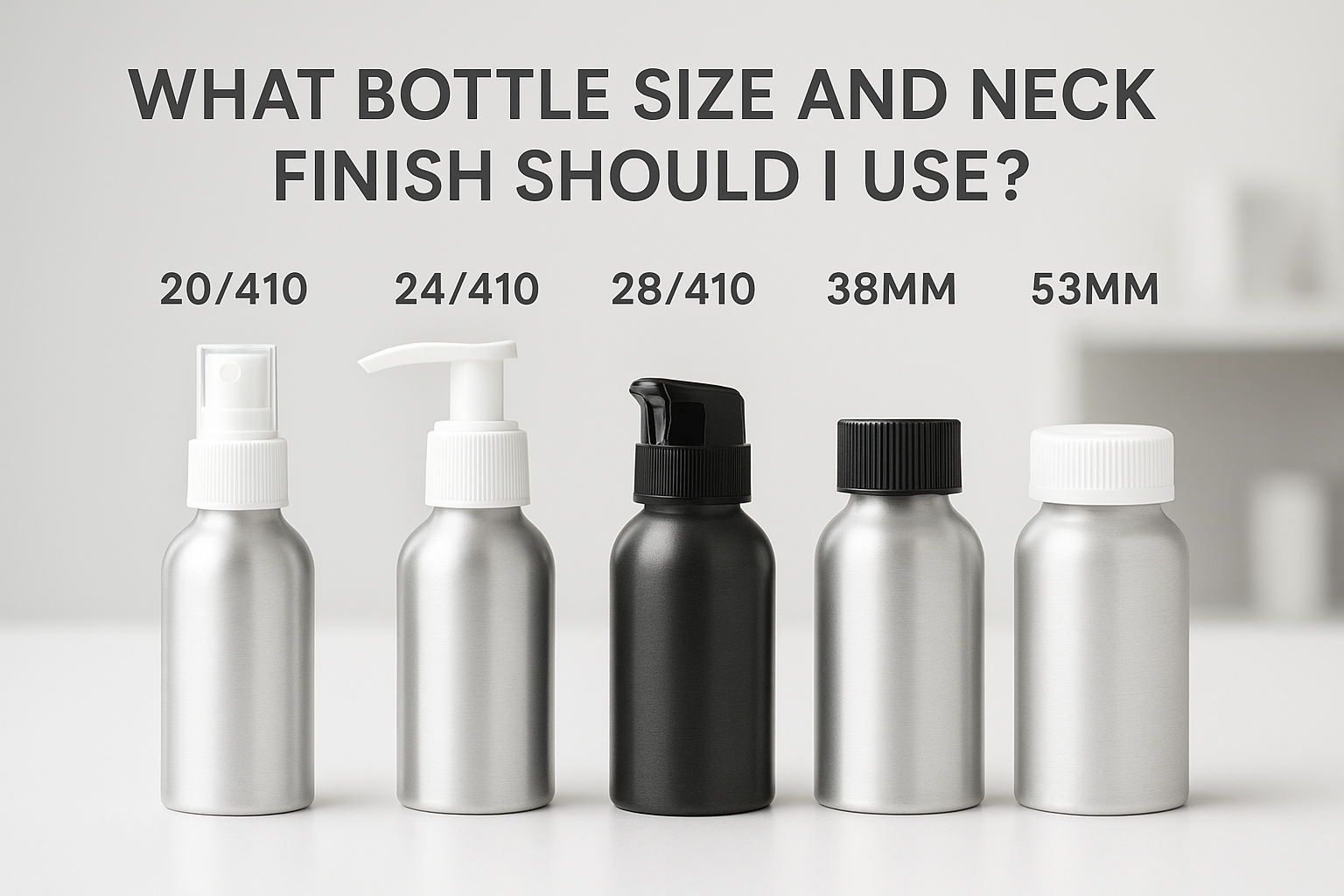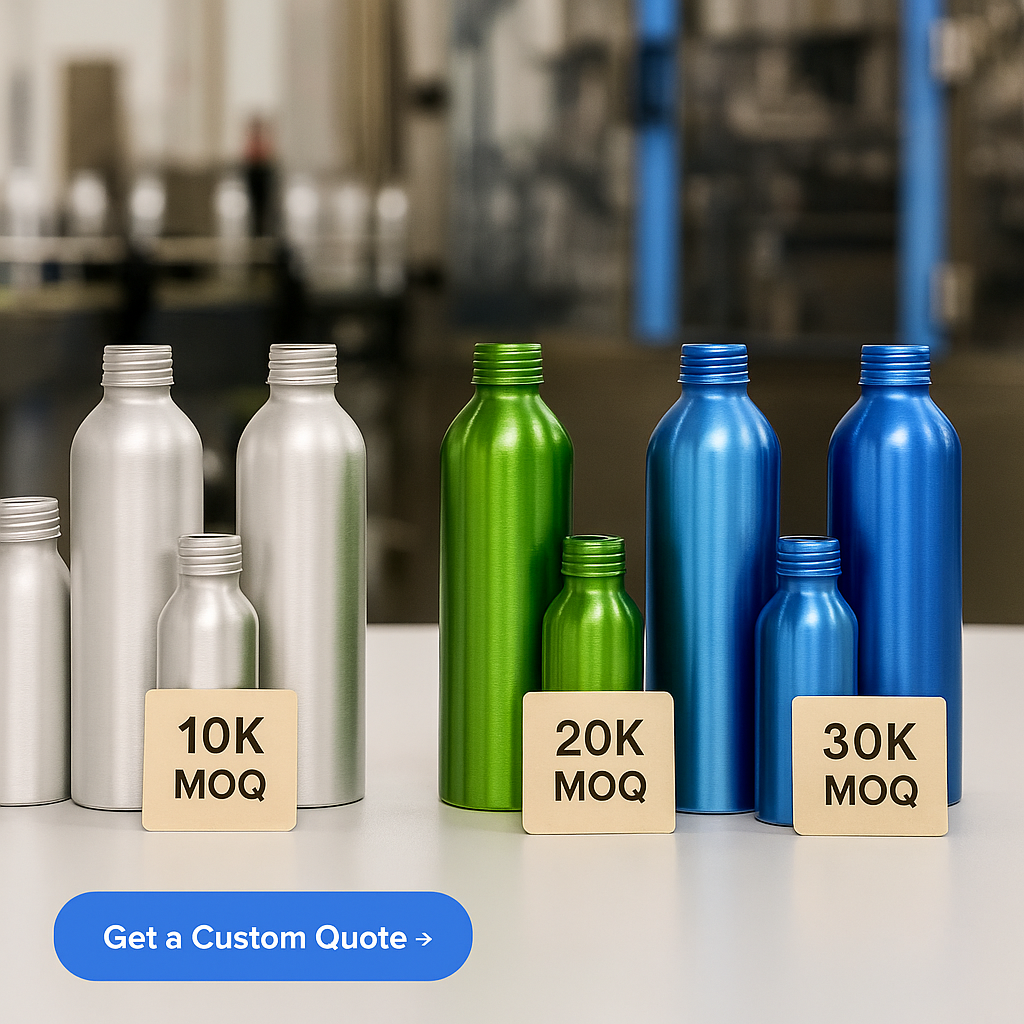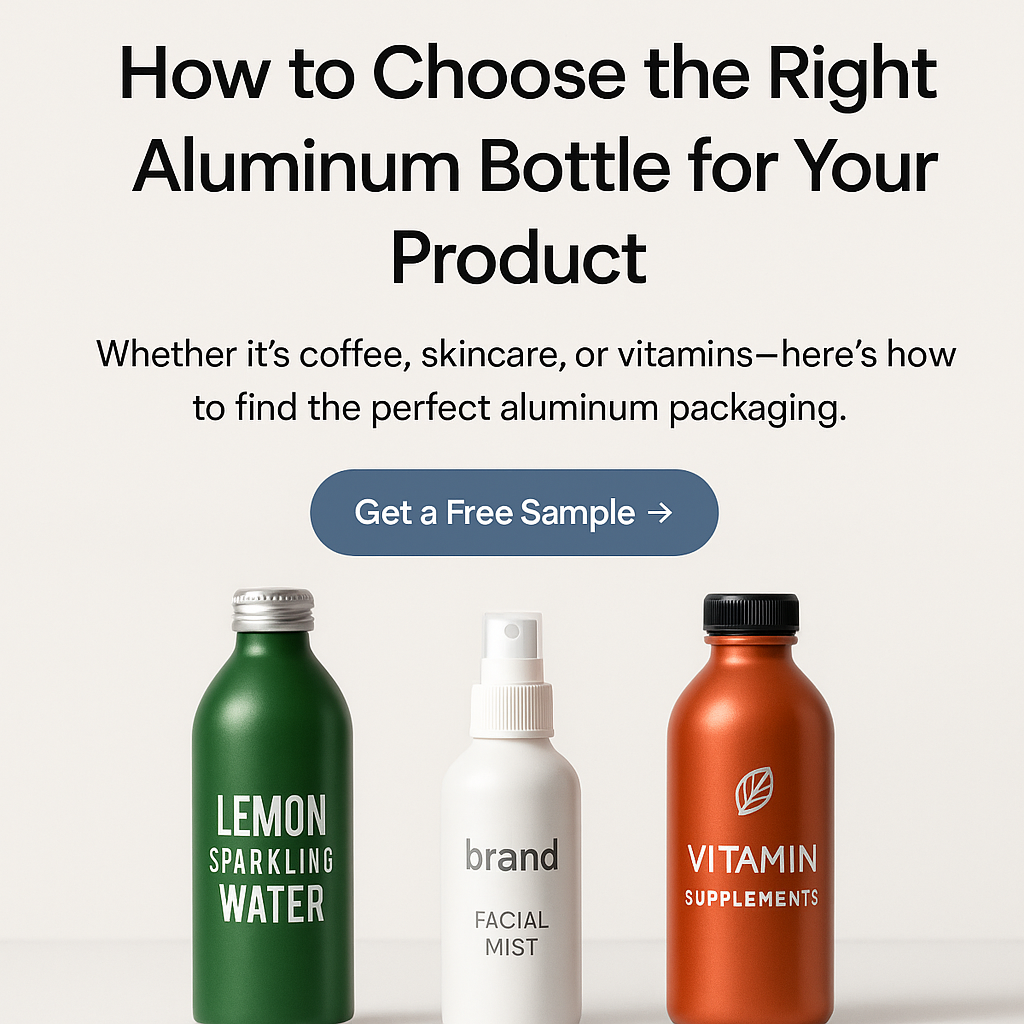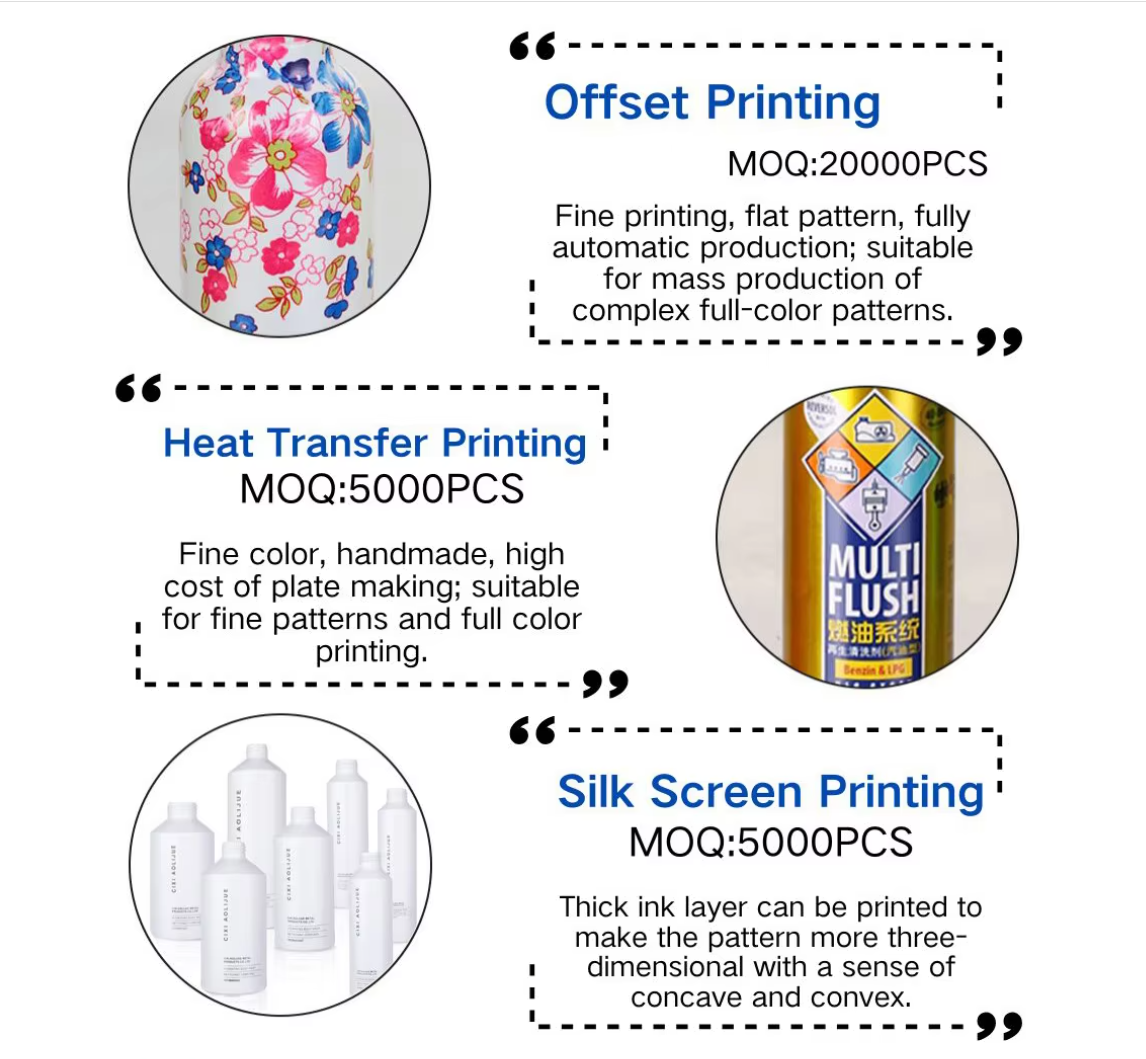
Aluminum Water Bottles
In a world very focused on sustainability, I often think about whether the daily things I use match my eco-friendly goals. Aluminum water bottles interest me, raising questions about their safety.
Yes, aluminum drink water bottles are safe to use. They feature BPA-free linings that prevent direct contact between the liquid and aluminum, ensuring health safety. These bottles undergo thorough cleaning and quality checks to meet high safety standards.
It is really calming to know they are secure. There is much beyond the outside of these bright containers. Checking how they are built, their advantages and how they compare to other materials could probably inform our decisions more.
Aluminum bottles have BPA-free linings.True
Aluminum bottles have BPA-free linings to stop metal from touching.
What Are the Benefits of Using Aluminum Bottles?
Aluminum containers are not only about looks; they provide significant advantages that could astonish you.
Aluminum bottles are lightweight, durable, and eco-friendly. They provide excellent insulation and can be recycled indefinitely, making them a sustainable choice for consumers. Additionally, their internal linings ensure that beverages remain uncontaminated by the metal, offering a safe drinking experience.

Benefit of Aluminum water bottle
Using Light and Strong
Aluminum bottles weigh very little. They remain extremely strong, making them great for outdoor use and trips. Glass might break and plastic might crack, but aluminum stays tough.
Eco-Friendly Choice
Aluminum bottles are eco-friendly because aluminum is recyclable forever. It does not lose quality each time it's recycled, reducing the need for new materials and cutting down environmental impacts.
Recycling Advantages
| Feature | Description |
|---|---|
| Recyclability | 100% recyclable; less trash in landfills. |
| Energy Saving | Using old aluminum saves up to 95% of the energy needed for new aluminum. |
Health and Safety
Aluminum bottles have a special layer inside that stops liquid from touching the metal. This layer is food grade and BPA-free, keeping your drink really safe. The manufacturing process includes careful cleaning steps to ensure hygiene and safety.
Conclusion
Aluminum bottles have many good points. Think about your own needs and preferences when comparing them with other materials like plastic or stainless steel.
Aluminum bottles are infinitely recyclable.True
Aluminum undergoes recycling many times without losing quality, helping sustainability.
Plastic bottles provide better insulation than aluminum.False
Aluminum bottles provide excellent insulation, keeping drinks warm or cool for more time.
How Do Aluminum Bottles Compare to Plastic and Stainless Steel?
Selecting the correct material for your water bottle greatly affects your health and the environment. How do aluminum bottles compare to plastic and stainless steel?
Aluminum bottles offer a lightweight, recyclable option with excellent temperature retention, standing out against plastic's affordability and stainless steel's durability. Each material comes with unique benefits and drawbacks.

Aluminum VS Plastic and Stainless
Material Weight and Portability
Aluminum bottles stand out because they are light. They are much lighter than stainless steel and easy to carry for trips or everyday use. But plastic bottles weigh the least, which might attract people who prefer easy carrying over other things.
| Material | Weight | Portability |
|---|---|---|
| Aluminum | Lightweight | Very easy to carry |
| Plastic | Very light | Extremely easy to carry |
| Stainless Steel | Heavier | Not as easy to carry |
Temperature Retention
For people wanting drinks to stay hot or cold, aluminum and stainless steel bottles do better than plastic ones.
Environmental Impact
Aluminum can be reused again and again without becoming worse, so it is good for the environment. Plastic, however, can only be reused a few times before its quality drops. Stainless steel can be reused well too, though it needs more energy at the start.
- Recycling Benefits1 of aluminum make it a good choice for the earth.
- See Plastic Recycling Challenges2 to learn its limits.
Durability and Safety
Stainless steel is very strong and almost never breaks, unlike aluminum, which can get dents. Both last longer than plastic. For safety, aluminum bottles often have BPA-free layers to stop metals from getting inside the drink, which is not usually a worry with stainless steel.
Every material has good and bad sides. When picking between aluminum3, plastic and stainless steel bottles, think about what fits best with what you need: weight, keeping temperature, friendly to the earth or how long it lasts.
Aluminum bottles are heavier than stainless steel.False
Aluminum is light compared to the heavy stainless steel.
Plastic bottles have better temperature retention than aluminum.False
Plastic does not hold heat like aluminum does.
What Are the Environmental Impacts of Aluminum Water Bottles?
Aluminum water bottles are praised for their sustainability, but what is their true environmental effect?
Aluminum water bottles have both positive and negative environmental impacts. They are recyclable and reduce single-use plastic waste, but their production requires significant energy and raw materials, contributing to greenhouse gas emissions.

Aluminum Water bottles
Manufacturing Impact
The production of aluminum water bottles4 involves mining bauxite ore, which is energy-intensive and can lead to deforestation, soil erosion, and biodiversity loss. The process requires considerable energy, primarily from fossil fuels, contributing to carbon emissions.
Energy Consumption: Producing aluminum is energy-heavy compared to plastics. The initial production phase consumes much energy, but recycling aluminum significantly reduces this demand.
Recycling Benefits
One of the key advantages of aluminum is its recyclability. Aluminum can be recycled indefinitely without losing quality. In fact, recycling aluminum saves up to 95% of the energy required to produce new aluminum from raw materials.
| Material | Recyclability | Energy Use |
|---|---|---|
| Aluminum | High recyclability | Energy-intensive |
| Plastic | Low recyclability | Less energy-intensive |
| Stainless Steel | Moderate recyclability | Varies depending on alloy |
By choosing recycled aluminum bottles, consumers can reduce their environmental footprint significantly.
Waste Reduction
Switching to aluminum bottles helps reduce reliance on single-use plastics, which are notorious for polluting oceans and harming marine life. The longevity of aluminum bottles means they can be reused many times, reducing waste.
Plastic Pollution Mitigation: By replacing plastic bottles with aluminum, consumers actively combat ocean and land pollution.
Transportation Emissions
Aluminum bottles are generally lighter than glass but heavier than plastic. This affects transportation emissions since more fuel is required to transport heavier items. However, because they are more durable, the long-term use offsets initial transportation emissions.
In conclusion, while aluminum water bottles offer significant environmental benefits in terms of recyclability and waste reduction, their production remains energy-intensive. Consumers opting for recycled aluminum and reusing bottles extensively can mitigate these impacts.
Aluminum bottles are more recyclable than plastic ones.True
Aluminum allows endless recycling, unlike plastic, which breaks down.
Producing aluminum uses less energy than producing plastic.False
Aluminum creation uses more energy than plastic creation.
Are There Any Disadvantages to Using Aluminum Bottles?
Aluminum bottles are liked for their earth-friendly reputation, but do they have any drawbacks?
Aluminum bottles can have disadvantages, such as potential denting and the energy-intensive production process. Another disadvantage of aluminum bottles is that the cost is higher than that of plastic or glass bottles.
Potential for Dents and Damage
One of the main physical drawbacks of aluminum bottles5 is their susceptibility to dents and scratches. Unlike plastic, which has some flexibility, aluminum is more rigid and can show visible damage if dropped or struck. This can affect the bottle's aesthetic appeal and, in some cases, its functionality.
Energy-Intensive Production Process
Producing aluminum bottles requires significant energy, primarily because extracting aluminum from bauxite ore is a high-energy process. Although recycling aluminum is less energy-intensive, the initial production phase raises concerns about carbon footprints. This factor might influence environmentally-conscious consumers to weigh the benefits against the environmental costs.
Cleaning and Maintenance
Aluminum bottles often feature a lining to prevent the metal from interacting with the contents, which is crucial for health safety. However, this lining can be sensitive to harsh cleaning chemicals or abrasive scrubbing. Users need to employ gentle cleaning methods to maintain the integrity of the lining and extend the bottle's lifespan.
Comparison with Other Materials
| Feature | Aluminum | Plastic | Stainless Steel |
|---|---|---|---|
| Weight | Light | Very light | Heavier |
| Durability | Moderate (dents easily) | High (flexible) | Very high |
| Insulation | Poor | Poor | Excellent |
While aluminum bottles offer a sustainable choice6, understanding these potential downsides can help users make informed decisions about their use.
Aluminum bottles are more durable than plastic.False
Aluminum bends easily, unlike flexible, strong plastic.
Producing aluminum bottles is energy-intensive.True
Removing aluminum from bauxite ore takes a lot of energy.
Conclusion
Aluminum bottles offer a green option with several advantages. Consider their positives in relation to personal requirements and other materials for a thorough choice.
-
Learn how recycling aluminum benefits the environment.: The environmental benefits of using recycled aluminum are extensive—including reducing energy use, mining pollution, shipping pollution and ... ↩
-
Understand the limitations of recycling plastic materials.: 7 Challenges for plastic recycling · 1. Increasing knowledge · 2. Finding Value · 3. Design for recycling · 4. Correct sorting · 5. Increasing availability · 6. ↩
-
Discover why aluminum bottles are a popular choice.: It weighs less by volume than most other metals. And, aluminum is easier to handle and less expensive to ship. From custom aluminum bottles and aerosol cans to ... ↩
-
Learn about the energy-intensive nature and ecological costs of aluminum production.: The primary impact from mining virgin aluminum comes in terms of global warming potential, water consumption, fossil fuel use, and freshwater ecotoxicity. ↩
-
Explore detailed discussions on physical and practical downsides.: Durability: Over time, especially with frequent use and cleaning, the plastic lining can degrade, crack, or peel. This not only exposes the beverage to the ... ↩
-
Learn about the energy and resources used in making aluminum.: The primary impact from mining virgin aluminum comes in terms of global warming potential, water consumption, fossil fuel use, and freshwater ecotoxicity. ↩


